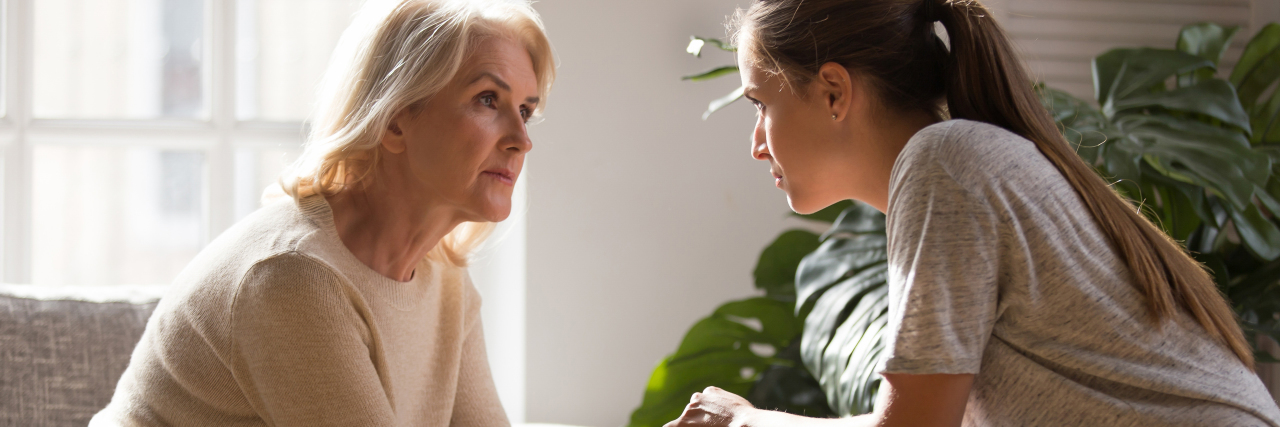When I was trying to be a helpful kid taking on caregiving tasks, I didn’t know any other kids my age in similar circumstances. I was not sure how to fully express what our family was going through, and I did not think of or label myself as a caregiver. I was just the daughter.
- Find helpful worksheets and self-care tips in our Digital Toolkit for Caregivers.
- If you’re not sure what to say to someone struggling, check out The Patient Translator
A recent article in Forbes states there are 3 to 5 million kids under 18 who are caregivers in their families in the United States. Those statistics are from a national survey that was done just before the pandemic. Now with the COVID-19 global pandemic, that number will likely become much higher. The short- and long-term effects of COVID-19 on health and its impact on families are not yet known, the health care system is overburdened, and the economy is in recession. Families will have to do more to take care of their loved ones, and inevitably the younger members of the family will start to share in the responsibilities.
This perfect storm of events helped me decide to do my first podcast episode with PHaware Global Association because I felt it was time to share how our family was not defeated by illness. In the episode, I share some of my experiences as the young daughter of a pulmonary hypertension patient, taking on caregiving tasks from middle school onward, and eventually caring for both of my parents as an adult daughter.
I’ve been thinking about how our family somehow navigated through the years my mom did not have the correct diagnosis, and the twisting and turning road that took us there. I wondered if I knew then what I know now, would caregiving have been any different for me, and what would I tell my younger self if I could?
This is what I would tell my younger self about caregiving:
Enjoy and appreciate the people you love so much.
You might have them longer than you think, but not as long as you would like. Make the time with them valuable. Tell them you love them, tell them how much, and tell them often.
There is a long road ahead.
There may be moments of uncertainty. There may be times you will wonder which ER visit will be the last, which doctor will have all the answers, and why we have to go to the hospital again. You may wish there were a magic wand that could fix everything. Instead, take it step by step. You will need to be flexible.
Your capacity will expand beyond what you thought was possible.
Ask questions and learn as much as you can. Keep good relationships with the doctors and others involved in the care and treatment of your family. You have all the abilities to meet the challenges ahead and be successful.
It takes a certain kind of person to be a caregiver.
Everyone might not understand or fully appreciate what your family is experiencing. They may not relate to things you choose to do or responsibilities you have. Don’t waste time waiting for people to understand.
Ask for help if you need it.
Create your own support team for the times you may need some direction. No one can do this alone. Let people earn your trust, and listen to your instincts.
Don’t give up on what you want for your family or for yourself.
Continue taking steps towards your own goals and ambitions, no matter how big or how small.
The concept of work-life balance is overrated.
You can best decide how to spend your time. Do not let others try to rearrange your priorities for you. Do not let others make you feel bad because you have family responsibilities that they don’t. Be at peace with your decisions.
There will be times you may wish things could have been different.
It is not easy to watch your loved ones experience health difficulties. You have a special purpose in your family to be there for them at this time.
Someday you will experience the loss of a loved one.
When the grief comes, you will have to be strong and not let it consume you. Everyone has their own way of dealing with grief. You will discover yours as well.
Have faith, including faith in yourself.
No illness will ever defeat you. Your life is precious and valuable. You are loved more than you know.
This is dedicated to caregiver kids, caregiving youth, and family caregivers of all ages.
Getty image by Fizkes.

